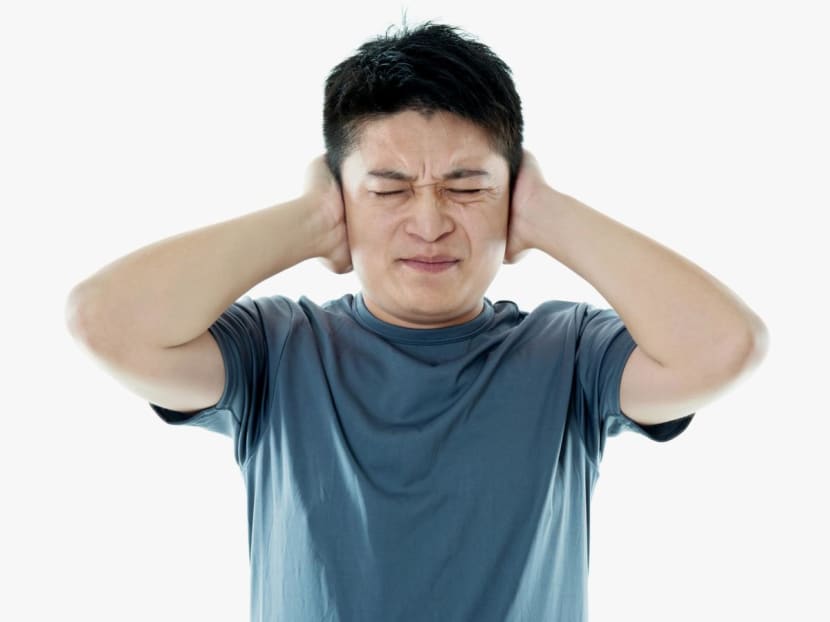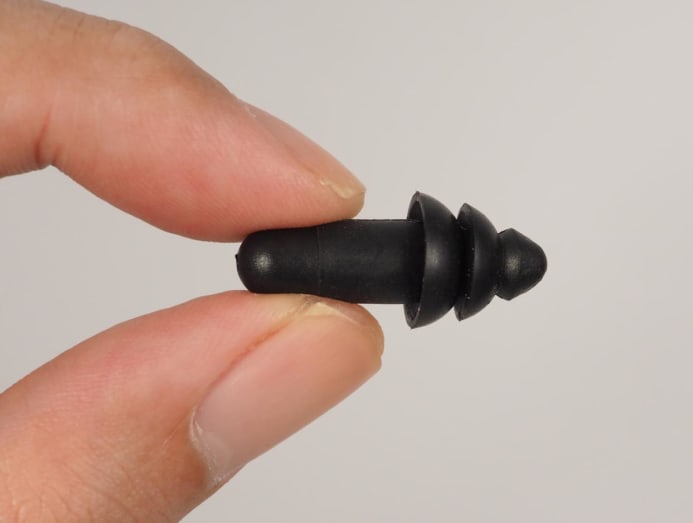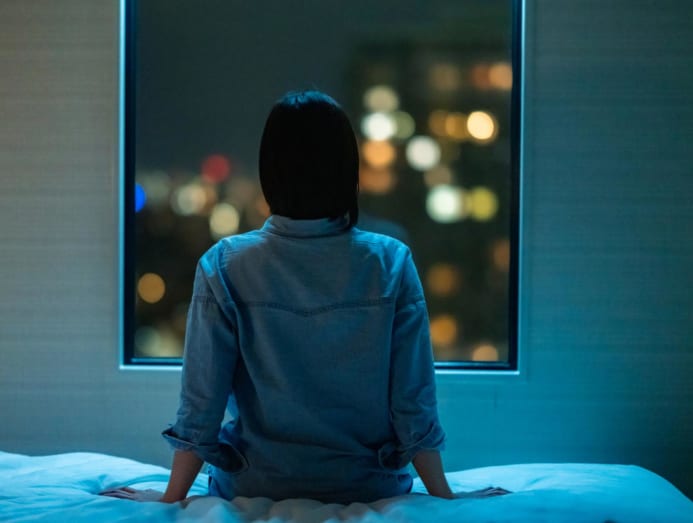Why so sensitive? How noise sensitivity can trigger stress and anxiety in some people
It’s one thing to be irritated by inconsiderate commuters who blast YouTube videos or music on the bus or MRT. But it’s something else if an intolerance to noise induces you to scream, throw objects or hit people. Find out if you have hyperacusis or misophonia.

The sensitivity to noise can trigger stress and anxiety. (Photo: iStock/baona)
This article was written in a cafe, where a mother was loudly sharing about her toddler’s night terrors with a friend and said toddler was blasting Pepper Pig on an iPad.
Someone had dragged a chair across the cavernous room. A work-from-home expat was dictating instructions to his overseas staff while pacing up and down. Occasionally, the coffee machine screeched as the barista foamed up the milk.
It all sounds normal, right? But to some, every scrape of the utensil, every syllable uttered in a loud conversation, and every chewing and smacking sound is akin to clashing cymbals right next to the ear. To the affected individual, the sensitivity to noise can trigger stress and anxiety.
Noise sensitivity is a thing but cases are rare, according to the audiologists CNA Lifestyle spoke to.

“We probably see about two or three patients per year, who can be children or adults. There could be many more patients out there who have not sought advice from healthcare professionals,” said Dr Jenny Loo, a senior principal audiologist of National University Hospital’s Department of Otolaryngology - Head & Neck Surgery.
She added that “it is rather rare to experience noise sensitivity constantly throughout the day” because the sensitivity is usually triggered by noises that are “high-pitched and screeching”.
“Once the person walks away from the noise source, that should stop the sensitivity,” she said. “I have a patient who could not take bird chirping noises.”
WHAT ARE THE CAUSES OF NOISE SENSITIVITY?
There are two conditions that can lead to those effects: Hyperacusis and misophonia (not the same as tinnitus), according to Jennifer Lee, a senior clinical audiologist at Hearing Partners Singapore. “Hyperacusis is described as a disorder in loudness perception, causing the individual to be overly sensitive to ‘normal’ sounds and find them painfully loud and unbearable.”
The average person should be able to tolerate a loudness tolerance of at least 85dBHL across different frequencies, said Lee, which would include sounds made by a food blender, heavy traffic while you are in the car, a noisy restaurant or in a cinema.
But not if you have hyperacusis. “Their reduced tolerance would mean that everyday sounds – such as talking, heavy rain and household appliances (including hairdryer, washing machine and vacuum cleaner) – are uncomfortable to them.”
Misophonia, on the other hand, is a disorder that reduces your tolerance to specific sounds, said Lee. It is common to feel irritated when you hear a knife being scraped across a plate. But for these patients, their reactions are a lot more violent.
“They would exhibit extreme emotional and behavioural reactions such as screaming, throwing objects and hitting people every time the trigger is present,” said Lee, along with physiological responses such as increased heart, respiration and perspiration rates when they hear the trigger sound.
HOW DO YOU MANAGE NOISE SENSITIVITY?
Sadrina Shah, a clinical audiologist at Hearing Partners Singapore, said that the key involves desensitising yourself instead of blocking out sounds completely. She cited a 2003 study that showed the continued reduction of sounds through the use of earplugs actually caused normal-hearing individuals to become even more sensitive to the loudness of sounds.

“In contrast, those who listened to low-level noise produced by sound generators continuously for two weeks, became less sensitive to the loudness of sounds. The study demonstrated that the brain is plastic and can be trained to desensitise and habituate to sounds,” she said.
Dr Loo agreed that the brain “can be gradually trained to accept and adapt to the environmental sounds as part of the desensitisation process”. “When you use earplugs, they block out ambient noises entirely, including some meaningful or useful ones. The brain will then become fixated on the reduced loudness of sound,” she said, “and you may constantly have to seek out a quiet environment, which is not realistic”.
Furthermore, Lee highlighted that “certain auditory-processing skills, such as speech in noise, are honed by having adequate exposure to ambient noise”. “Depriving the ears and brain of these noises could inadvertently lead to regression of these skills.”
In short, if you are noise sensitive, ear plugs may not be the solution for you, said Shah. “Only use earplugs when necessary such as to protect your ears from loud, harmful sounds.”

WHAT CAN YOU DO WHEN YOU’RE OUT?
While those with hyperacusis may want to avoid loud and crowded environments, they should still reintroduce everyday sounds bit by bit for desensitisation, said Shah.
“Start with a sound level that is comfortable and slowly increase it to a level that is somewhat uncomfortable. Acclimate to it before moving on further. Try these steps with different types of sounds as your tolerance to high and low-pitched sounds may be different,” she said.
If you’re out in public places such as cafes and restaurants, try to find quiet seats such as away from the kitchen and tables with big groups of people, advised Shah.
“In situations where you do not have control over the noise (such as a toddler suddenly crying or loud conversations on public transportation), the best thing to do would be to move away from the source of noise.”

WHAT ABOUT NIGHTTIME?
“Depending on the type of noise sensitivity, the quietness at night might be a relief to patients,” said Lee. “Most activities at night, if any, would usually be at a minimum and quietest, roughly around 35dBHL to 45dBHL.”
If the sounds still bother you, Dr Loo suggested putting on soothing background music to mask any potential noise source that irritates you.
“Those with hyperacusis, who find it challenging to fall asleep due to their heightened awareness of background noise, may consider the use of white noise machines to create a consistent background sound that can mask other noises and help them relax,” said Lee.
If you suffer from misophonia and your trigger sound is snoring or teeth grinding, sleeping in separate rooms or using earplugs would help, said Lee.
“In general, if noise sensitivity is causing significant distress and is interfering with daily life, it is recommended to seek advice from a healthcare professional or therapist who can provide tailored coping strategies,” said Shah.








